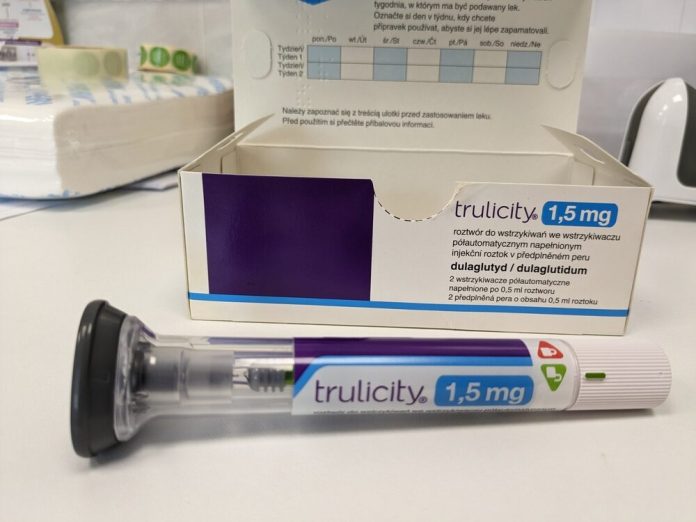Trulicity, a popular medication prescribed for type 2 diabetes, has recently come under scrutiny due to emerging lawsuits alleging serious side effects and a lack of adequate warning by its manufacturer, Eli Lilly and Company. Understanding the details of the Trulicity lawsuit is essential for both current users of the drug and those considering it as part of their treatment plan. This article will provide an overview of Trulicity, the basis of the lawsuits, the alleged side effects, and the potential legal options for affected patients.
What is Trulicity?
Trulicity (dulaglutide) is an injectable medication approved by the FDA to help manage blood sugar levels in adults with type 2 diabetes. As a glucagon-like peptide-1 (GLP-1) receptor agonist, it helps regulate blood sugar levels by stimulating insulin secretion when blood sugar is high, reducing glucagon production, and slowing gastric emptying. It has been widely prescribed due to its efficacy in managing diabetes and its once-weekly dosing convenience compared to daily injections required by some other diabetes medications.
The Basis of the Trulicity Lawsuit
The Trulicity lawsuit revolves around claims that the drug’s manufacturer, Eli Lilly, failed to adequately warn patients and healthcare providers about the serious risks associated with the medication. The lawsuits allege that Eli Lilly was aware, or should have been aware, of potential severe side effects but did not sufficiently communicate these risks.
Plaintiffs in these cases are arguing that Eli Lilly neglected its duty to provide adequate warnings about the dangers of Trulicity, resulting in users suffering from serious health complications. These lawsuits claim that had patients and doctors been properly informed about the risks, they might have opted for alternative treatments.
Alleged Side Effects Linked to Trulicity
The Trulicity lawsuit highlights several serious side effects that plaintiffs claim were not adequately disclosed. The most commonly cited complications include:
- Pancreatitis: Some Trulicity users have developed pancreatitis, an inflammation of the pancreas that can cause severe abdominal pain, nausea, vomiting, and potentially life-threatening complications.
- Thyroid Cancer: There have been reports linking Trulicity to an increased risk of developing thyroid cancer. This link is based on animal studies and a few reported cases in humans, prompting concerns about the long-term safety of the medication.
- Kidney Issues: There have also been allegations of Trulicity causing or exacerbating kidney problems, particularly in patients who already have compromised kidney function due to diabetes.
- Gastrointestinal Issues: Commonly reported gastrointestinal side effects include nausea, vomiting, diarrhea, and abdominal pain, which can severely affect a patient’s quality of life.
Legal Grounds for the Lawsuits
The Trulicity lawsuit is largely based on the legal grounds of product liability. Plaintiffs are claiming that Trulicity was defectively designed, inadequately tested, and that Eli Lilly failed to provide sufficient warnings about its potential risks. The claims in these lawsuits often include:
- Failure to Warn: Allegations that Eli Lilly failed to adequately warn patients and healthcare providers about the severe risks associated with Trulicity.
- Negligence: Claims that Eli Lilly was negligent in its testing and marketing of Trulicity, prioritizing profits over patient safety.
- Strict Liability: Legal arguments that the drug’s design and lack of adequate warnings make Eli Lilly strictly liable for any harm caused by Trulicity.
Current Status of the Lawsuits
The Trulicity lawsuit is still in its early stages, with many cases being filed across the United States. As of now, there have been no major settlements or court verdicts, but the number of lawsuits is expected to grow as more patients become aware of the potential risks associated with the medication. Legal experts suggest that Eli Lilly may face significant financial liability if it is found to have failed in its duty to warn patients about Trulicity’s risks.
What Should Patients Do?
If you or a loved one has been prescribed Trulicity and experienced serious side effects, it is crucial to consult with a healthcare professional immediately to assess your situation. You may also want to speak with a lawyer experienced in pharmaceutical litigation to explore your legal options. Participation in the Trulicity lawsuit could potentially provide compensation for medical expenses, pain and suffering, and other related damages.
Conclusion
The Trulicity lawsuit underscores the importance of thorough research and communication regarding the safety of medications. As more information becomes available, patients need to stay informed and proactive in managing their health and understanding the risks associated with their medications. While Trulicity remains an effective treatment option for many people with type 2 diabetes, those affected by its severe side effects should be aware of their legal rights and consider their next steps carefully.










